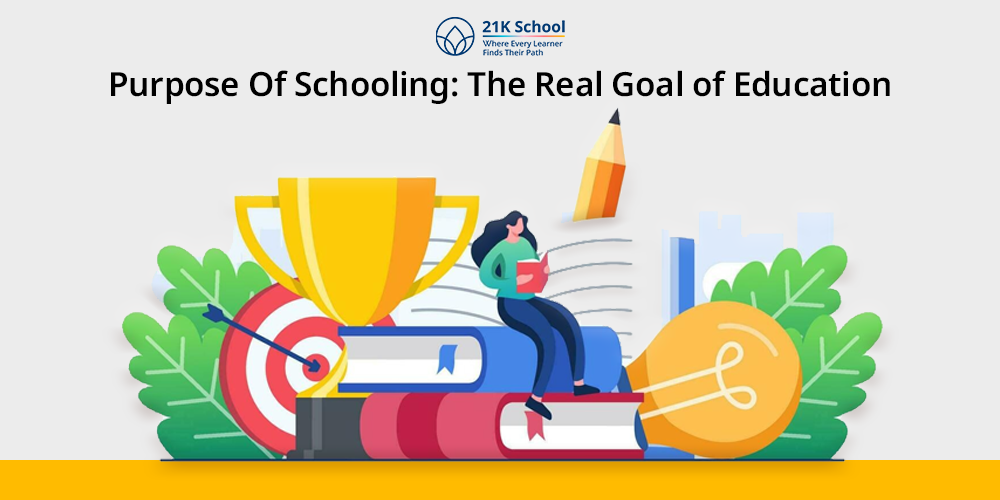
Education is seen as a tool of progressive and uplifting part of society which can’t be neglected.
However, the purpose of schooling goes beyond the simple transmission of knowledge from textbooks to young minds.
Education in today’s century shapes identities, builds character, and equips students with the necessary tools to navigate life meaningfully.
In India, where the educational landscape is diverse and deeply rooted in history, understanding the true goal of dynamic education is vital.
It ensures a just, innovative, and inclusive future. In this blog we will explore the purpose of schooling in students’ lives.
Let’s begin!
Table of Contents
Historical of Schooling in India
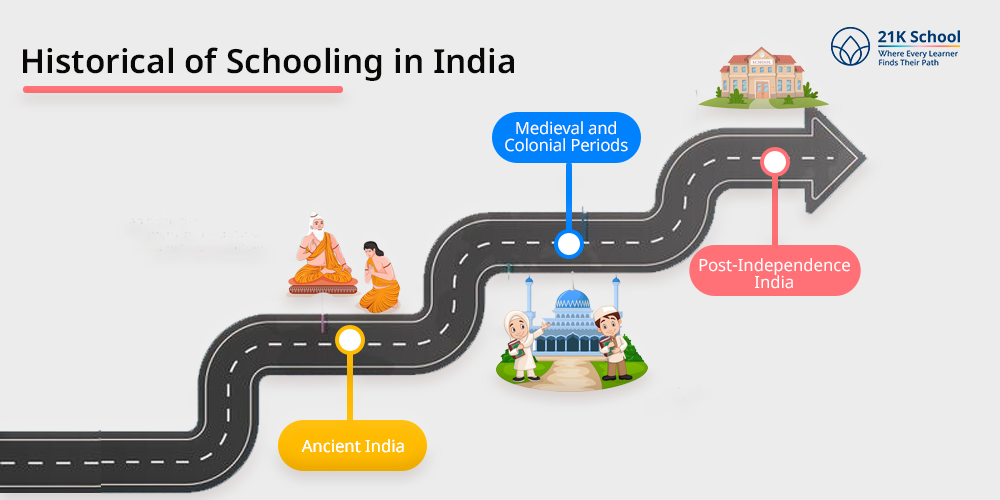
With time schooling has evolved and understanding the history of schooling in India ensures the growing need of education.
The real time span starts from ancient Gurukuls and monastic universities to the modern system influenced by colonial policies and the rise of independent India.
Based on research early the main focus of schooling is holistic education and spiritual growth. However later it shifted to more formal, specialized institutions.
Let’s understand in depth:
1. Ancient India
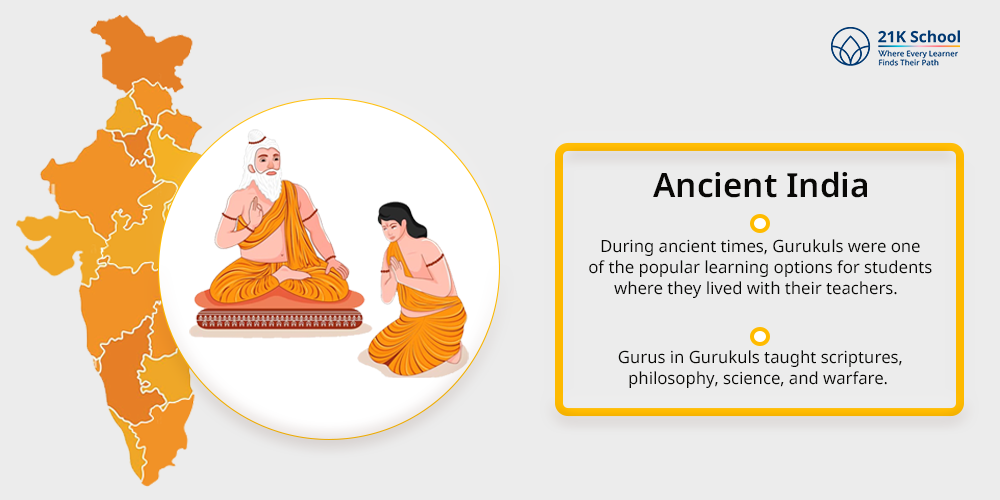
During ancient times, Gurukuls were one of the popular learning options for students where they lived with their teachers.
Students call them Gurus. Gurus in Gurukuls taught scriptures, philosophy, science, and warfare. Later, the Vedic period emphasized learning the Vedas, religion, arithmetic, and logic.
Many renowned universities like Nalanda and Taxila emerged as global centers of knowledge. It offers diverse subjects and nurtures vibrant intellectual communities.
2. Medieval and Colonial Periods
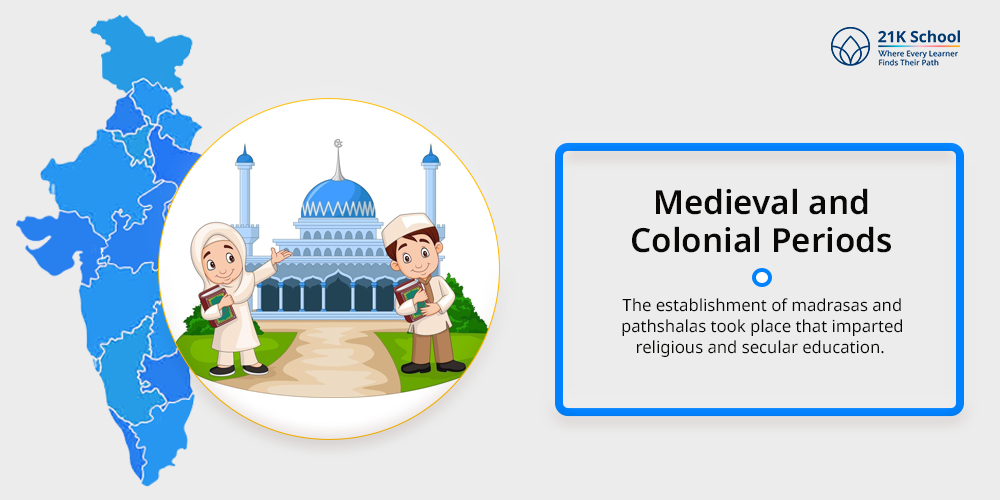
The Medieval and Colonial Periods played an important role in schooling. The establishment of madrasas and pathshalas took place that imparted religious and secular education.
The British in the colonial period brought Western-style education with an emphasis on clerical and administrative skills which often sidelining traditional knowledge systems.
This is the foundation of modern schools and colleges. Traditional schooling still has some impacts of Western-style education.
3. Post-Independence India
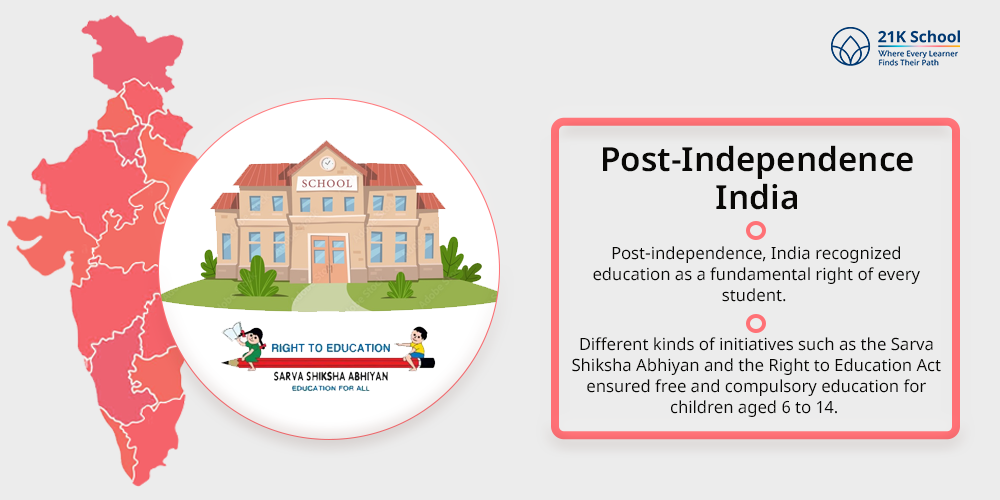
Post-independence, India recognized education as a fundamental right of every student. The Constitution laid the foundation for a structured schooling system across various levels.
Different kinds of initiatives such as the Sarva Shiksha Abhiyan and the Right to Education Act ensured free and compulsory education for children aged 6 to 14.
Also, National Policy On Education was introduced to address educational challenges and promote equal opportunities for all.
Core Purposes of Schooling
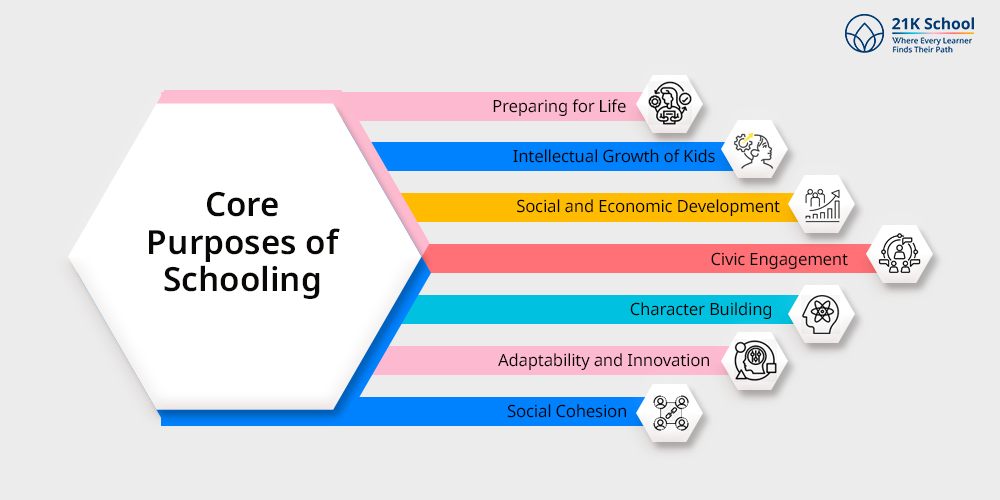
The core purposes of schooling are to prepare students for productive lives, develop critical thinking, social skills, and encourage cultural awareness in students.
Schools aim to provide knowledge, skills, and values which are essential to become successful in an evolving world.
Elaboration of Core Purposes of Schooling:
1. Preparing for Life
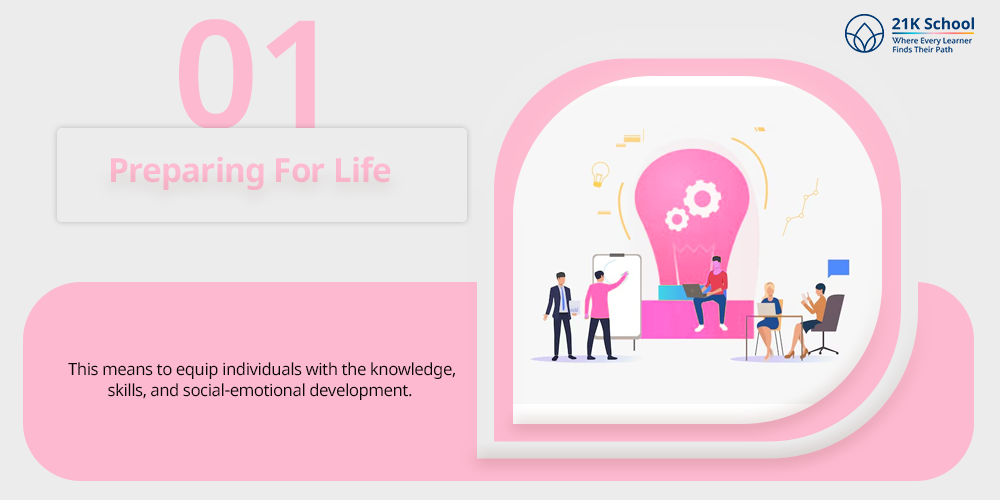
One of the essential purposes of schooling is preparing for life. This means to equip individuals with the knowledge, skills, and social-emotional development.
Understand the importance of life skills in modern education of students.
It needed to thrive in life and contribute to society in a better way. Schooling provides an environment where students can grow not only academically but also socially.
Essential life skills such as critical thinking, problem-solving, and emotional intelligence are fundamental for succeeding in personal and professional spheres.
2. Intellectual Growth of Kids
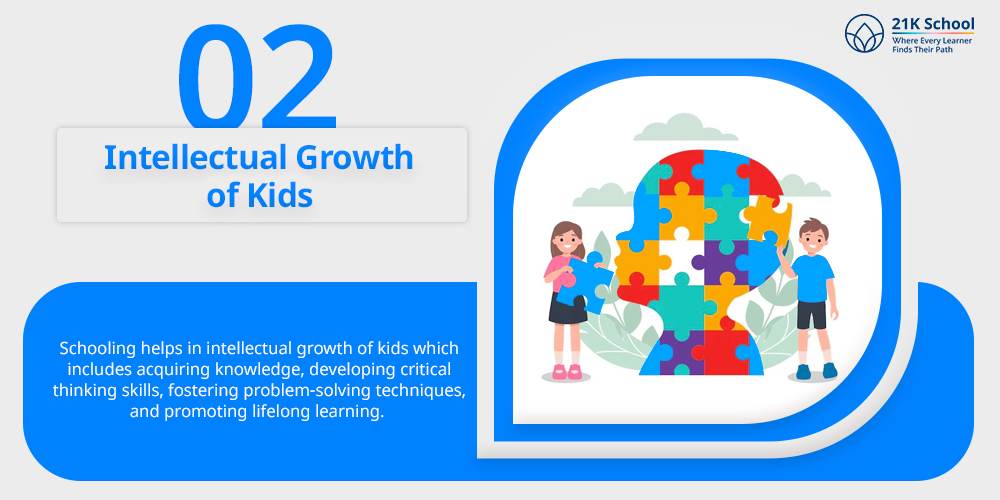
Schooling helps in intellectual growth of kids which includes acquiring knowledge, developing critical thinking skills, fostering problem-solving techniques, and promoting lifelong learning.
Children are encouraged to ask questions, explore ideas, and understand the world around them. They can also discover creative painting ideas or paper tearing activity.
Students get a structured environment for learning which helps them to explore new things and develop cognitive skills.
Intellectual growth also fostering intellectual curiosity in students.
3. Social and Economic Development
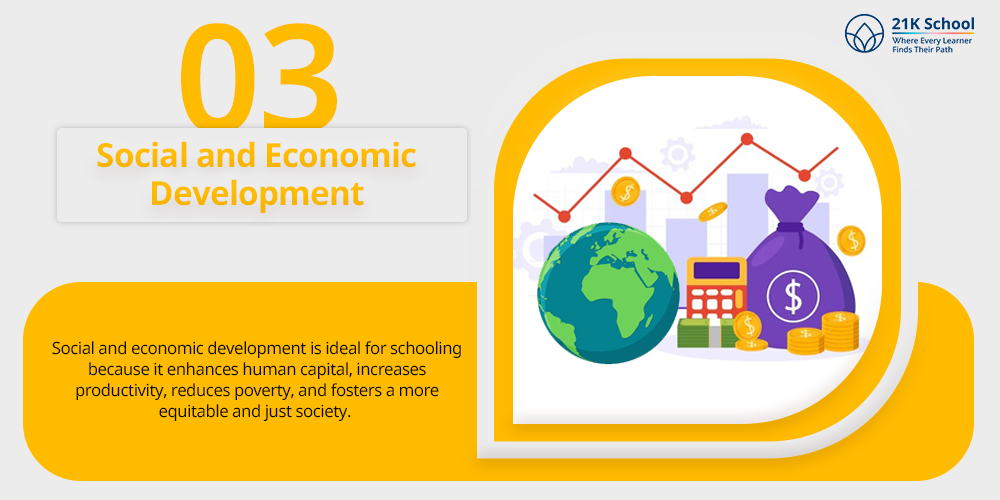
Social and economic development is ideal for schooling because it enhances human capital, increases productivity, reduces poverty, and fosters a more equitable and just society.
School bridges the gap between students with socio economic skills that offers new opportunities and aap lift their contribution in the environment.
In today’s era individuals see education as a catalyst for social emotional development.
4. Civic Engagement
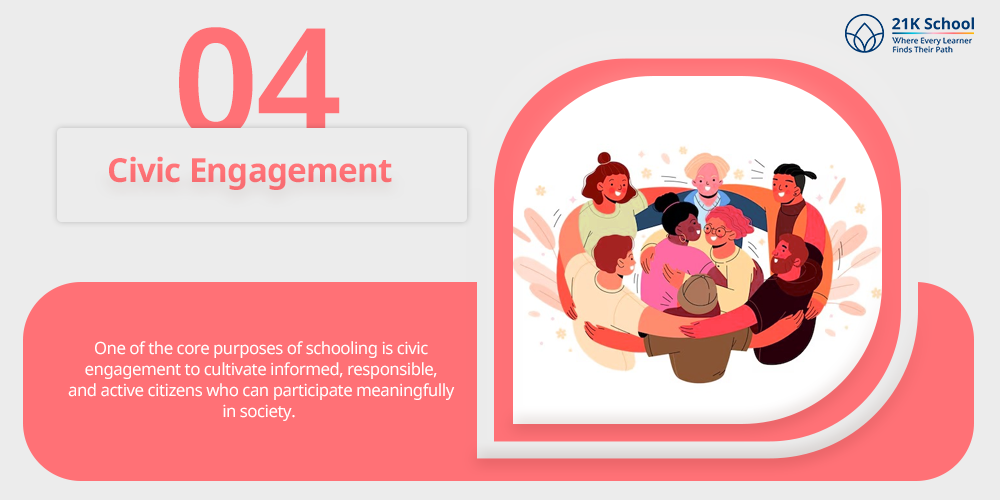
One of the core purposes of schooling is civic engagement to cultivate informed, responsible, and active citizens who can participate meaningfully in society.
Different kinds of civic education and values such as responsibility, justice, and democratic participation make a positive impact on students.
5. Character Building
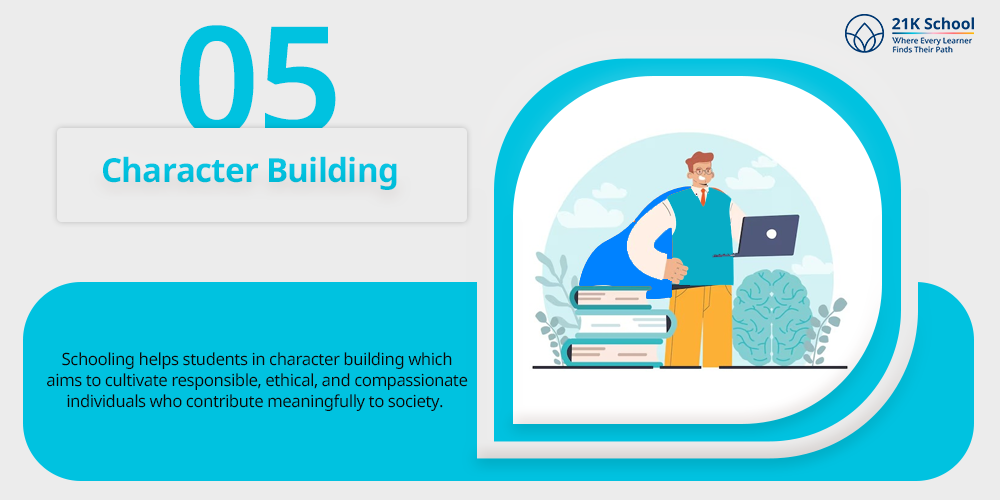
Schooling helps students in character building which aims to cultivate responsible, ethical, and compassionate individuals who contribute meaningfully to society.
It is not only good for academic achievements but also prepares students for life’s complexities. Some key areas of character building are promoting ethical leadership and moral values.
6. Adaptability and Innovation
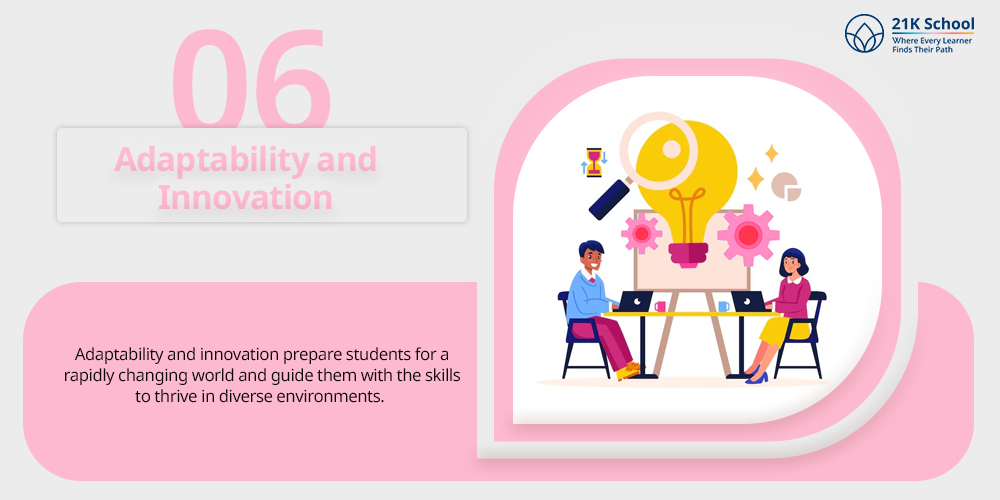
Adaptability and innovation prepare students for a rapidly changing world and guide them with the skills to thrive in diverse environments.
Schools prepare students for existing jobs but also equip them to handle diverse roles.
7. Social Cohesion
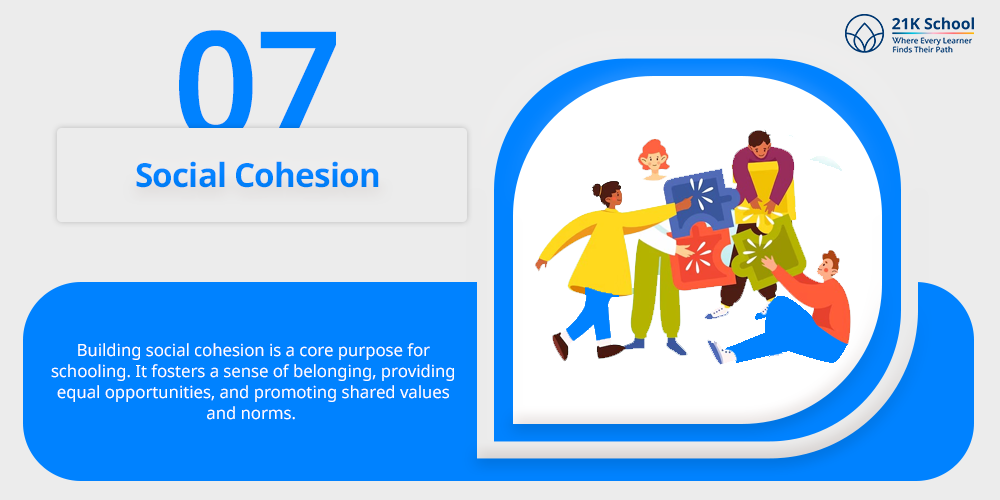
Building social cohesion is a core purpose for schooling. It fosters a sense of belonging, providing equal opportunities, and promoting shared values and norms.
Schooling plays a critical role in promoting unity in diversity.
The Role of Schooling in Shaping Society
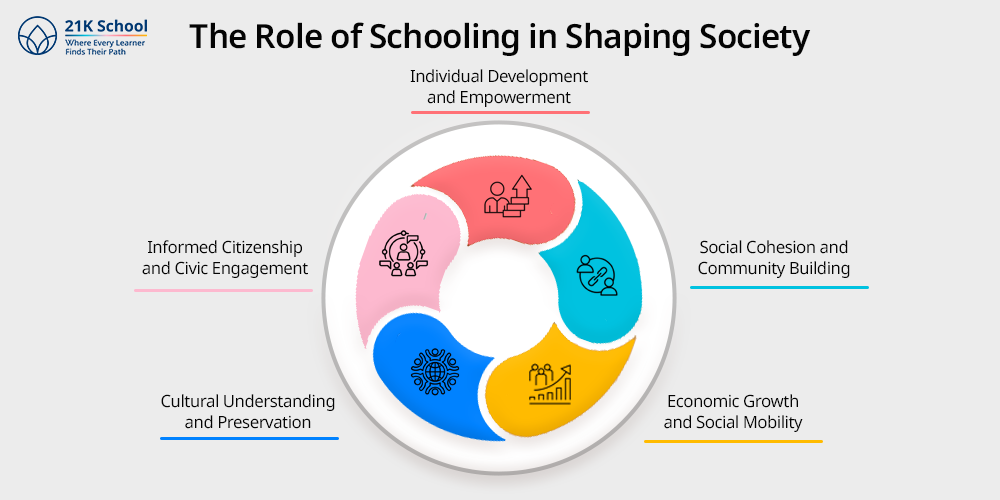
Schooling plays a major role in shaping society by empowering individuals, promoting social cohesion, driving economic growth, and fostering informed citizenship.
Let’s understand each role in a more detailed way:
1. Individual Development and Empowerment
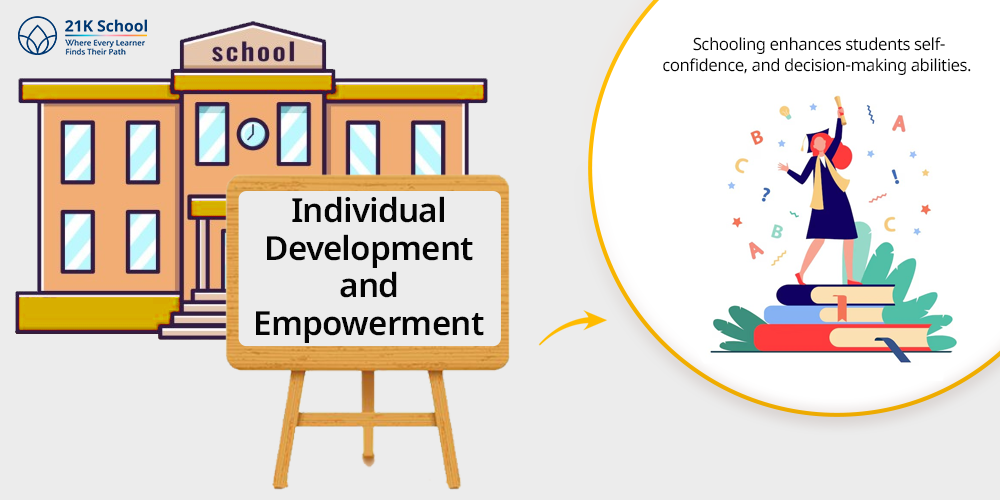
Schooling helps individual development and empowerment of the society. It enhances students self-confidence, and decision-making abilities.
It provides the foundation for critical thinking, problem-solving, and personal growth, enabling individuals to lead fulfilling lives and contribute to society. Explore how to develop critical thinking skills in students.
2. Social Cohesion and Community Building
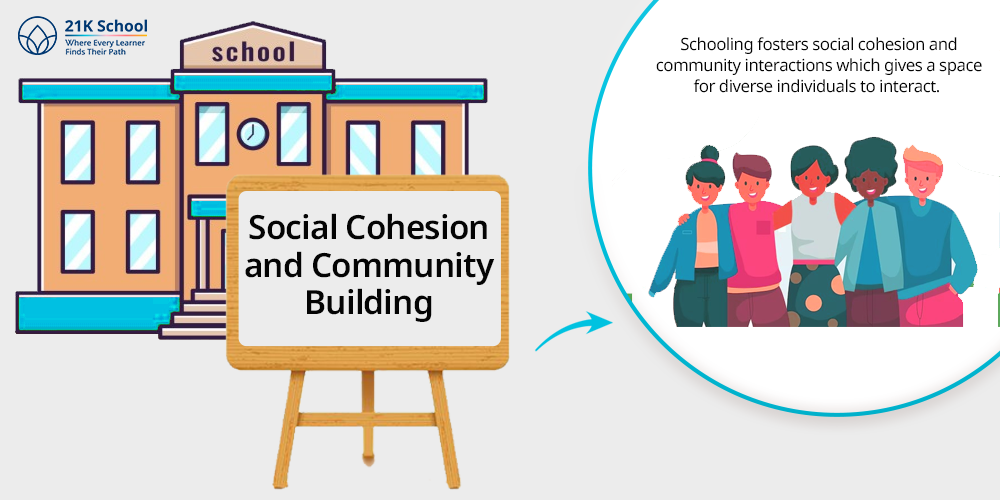
Schooling fosters social cohesion and community interactions which gives a space for diverse individuals to interact.
They also learn about different perspectives, and develop a sense of shared identity and purpose. By this children understand and appreciate differences to foster inclusive communities.
3. Economic Growth and Social Mobility
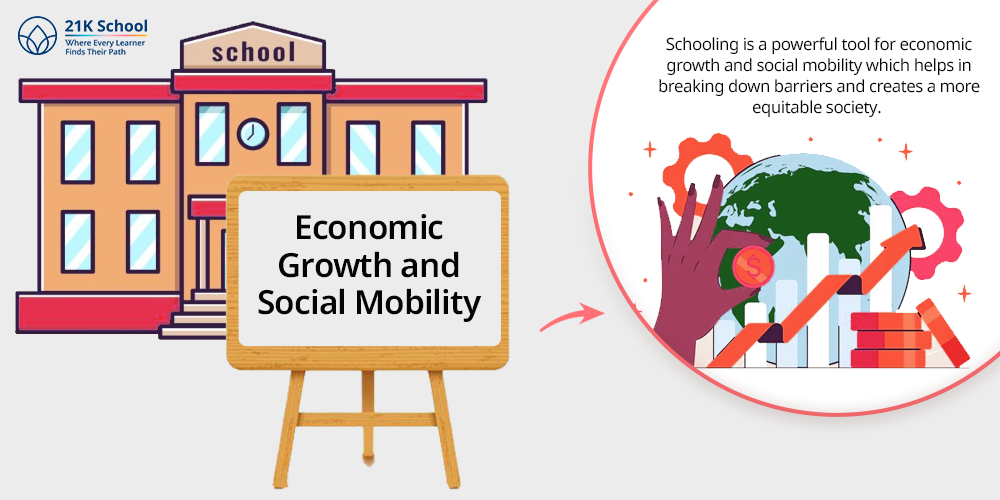
Schooling is a powerful tool for economic growth and social mobility which helps in breaking down barriers and creates a more equitable society.
Children with good schooling get employability and higher incomes. This gives social mobility and respect. Which fuels economic growth and development.
4. Cultural Understanding and Preservation
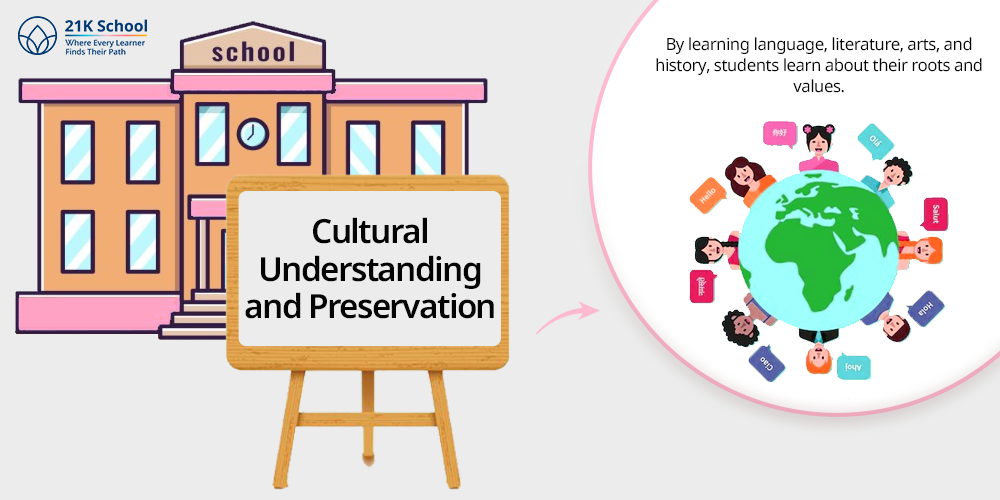
School plays an important part in cultural understanding and preservation. By learning language, literature, arts, and history, students learn about their roots and values.
Online schooling offers a platform for transmitting cultural heritage, values and traditions from one generation to the next.
This ensures that future generations remain connected to their culture.
5. Informed Citizenship and Civic Engagement
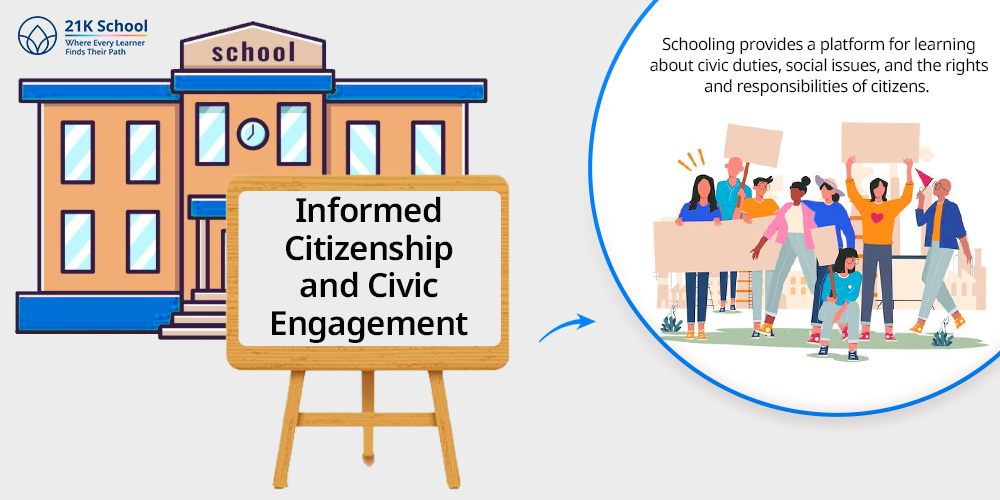
Schooling provides a platform for learning about civic duties, social issues, and the rights and responsibilities of citizens.
In a democracy, informed citizenship and civil engagement are something teachers and schools educate students. They act responsibly and raise their voices.
Challenges in Fulfilling the Purpose of Schooling
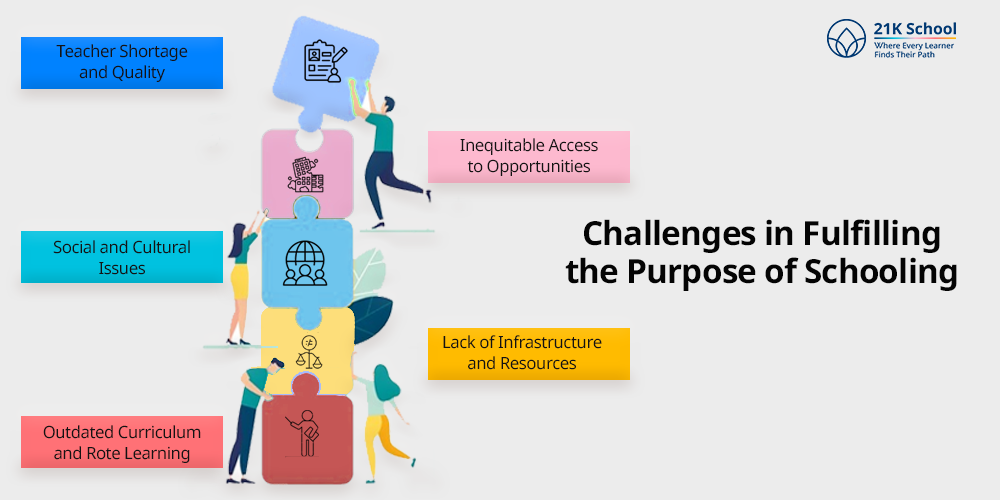
There are many challenges in fulfilling the purpose of schooling: insufficient funding, inadequate infrastructure, outdated curriculum and teaching methods, lack of teacher training etc.
Here’s a more detailed way at these challenges:
1. Outdated Curriculum and Rote Learning
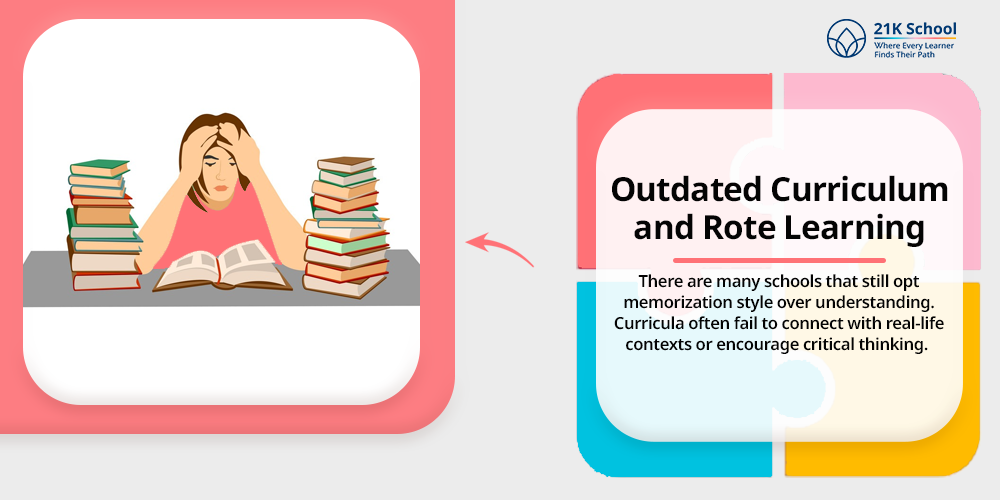
There are many schools that still opt memorization style over understanding. Curricula often fail to connect with real-life contexts or encourage critical thinking.
This can create problems, adaptability, critical thinking, impact creativity and meaningful learning.
2. Lack of Infrastructure and Resources
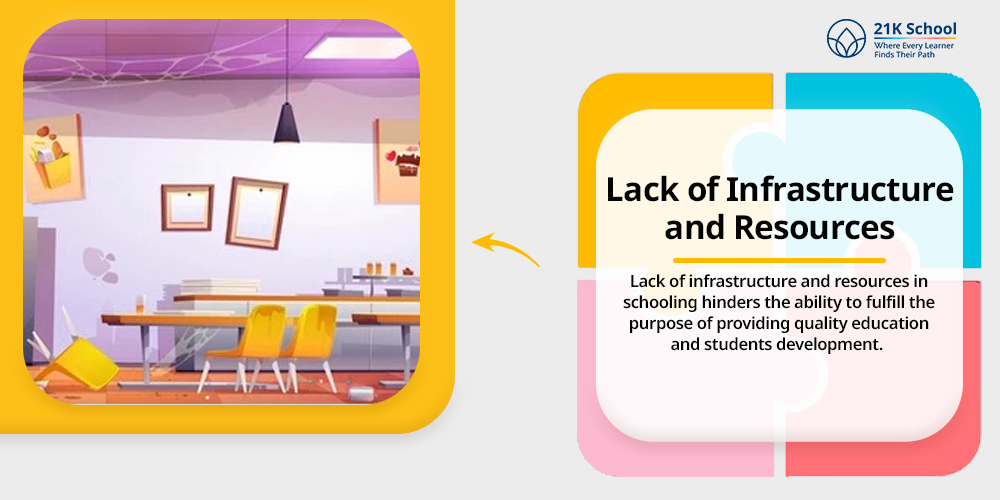
Lack of infrastructure and resources in schooling hinders the ability to fulfill the purpose of providing quality education and students development.
It includes problems like overcrowded classrooms, insufficient resources, inadequate sanitation, and limited access to technology and learning materials.
3. Social and Cultural Issues
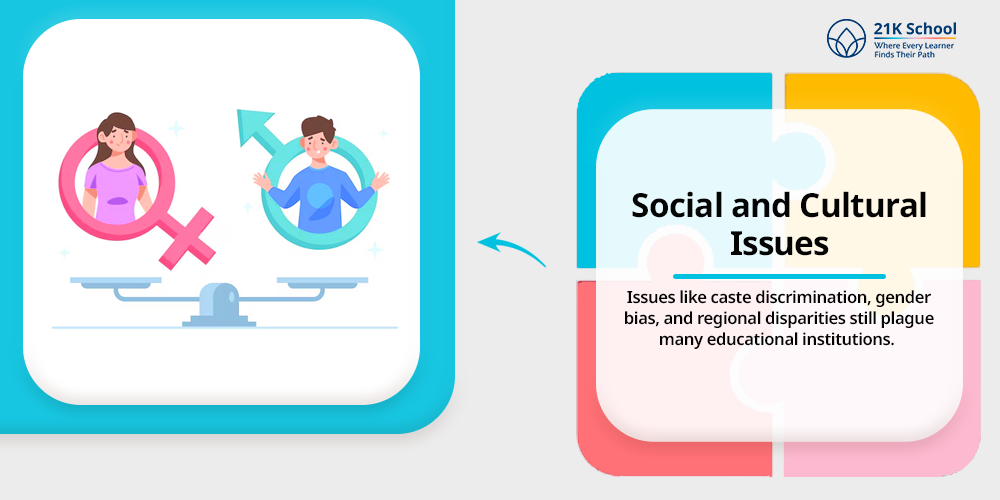
A significant challenge in schooling is social and cultural issues. Issues like caste discrimination, gender bias, and regional disparities still plague many educational institutions.
Each of these social barriers limit access and participation of students. It is particularly for marginalized communities.
4. Inequitable Access to Opportunities
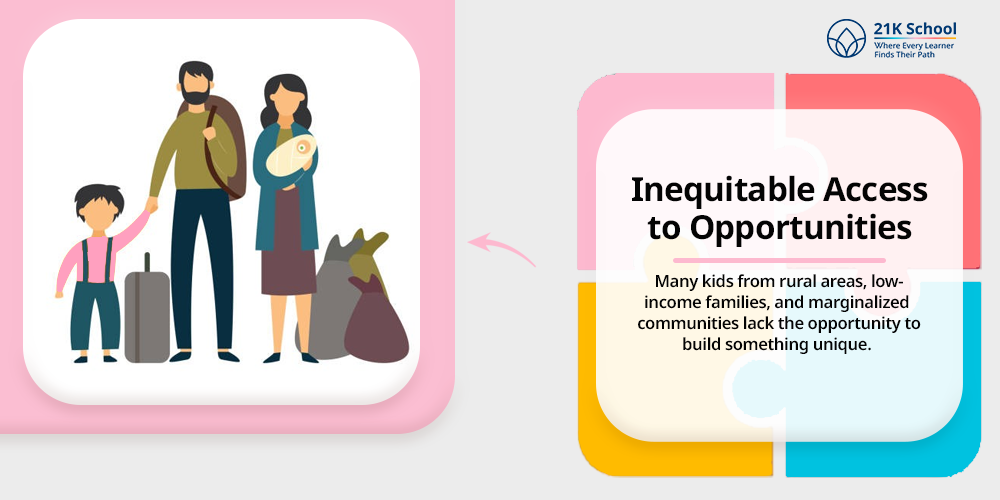
Inequitable access to opportunities in education means getting enough chances. This can be done to equip individuals with the knowledge, skills, and mindset necessary for success.
Many kids from rural areas, low-income families, and marginalized communities lack the opportunity to build something unique.
5. Teacher Shortage and Quality
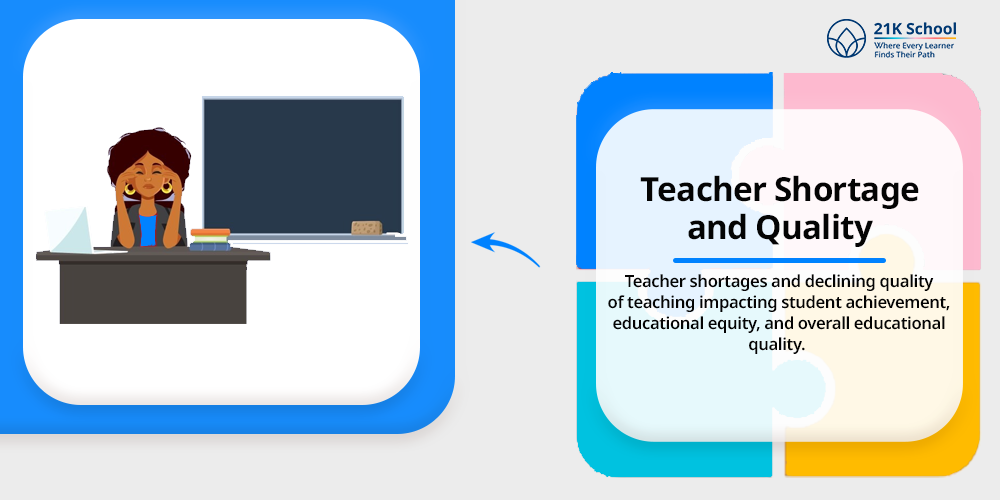
Teacher shortages and declining quality of teaching impacting student achievement, educational equity, and overall educational quality.
Presence of teachers and quality education is a right of every student. Effective schooling must be prioritized.
Future of Schooling
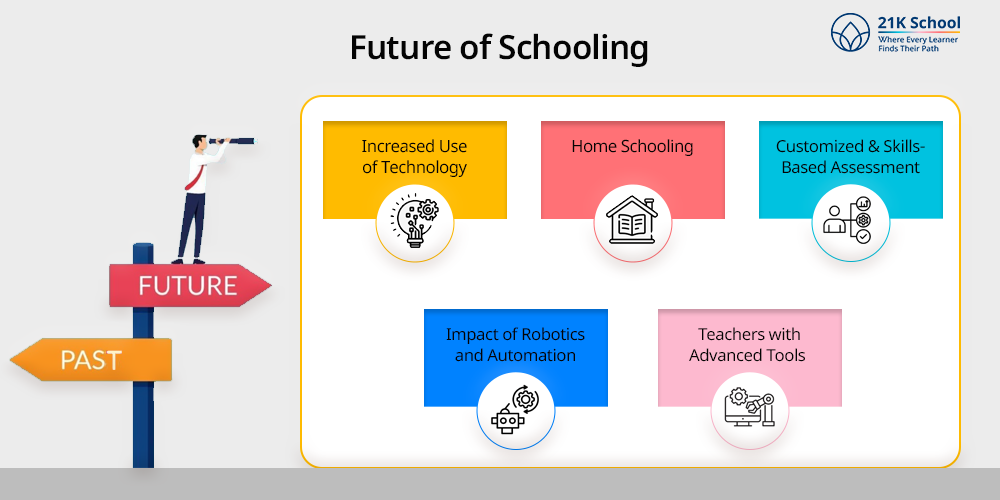
The rising future of Schooling has many benefits. This shift will involve greater use of online learning platforms, project-based learning, and AI.
Let’s understand in elongated manner:
1. Increased Use of Technology
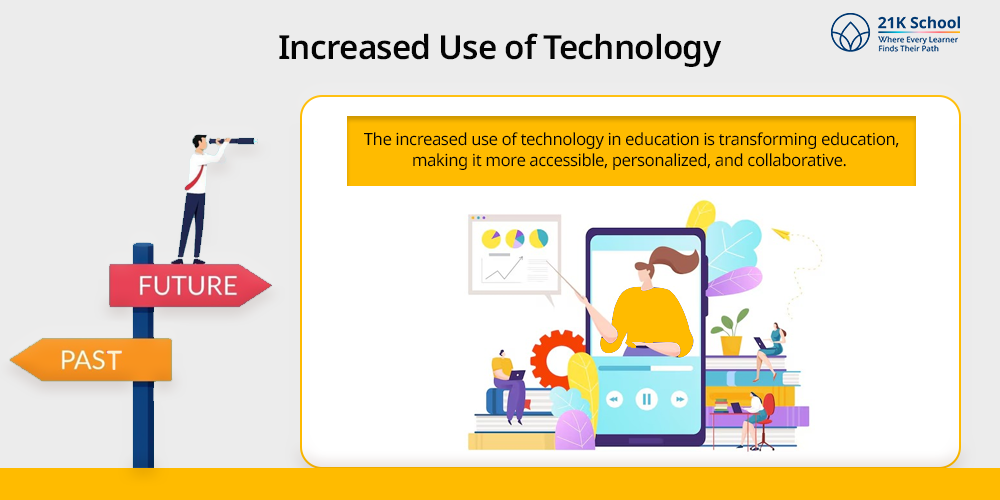
The increased use of technology in education is transforming education, making it more accessible, personalized, and collaborative.
From smart classrooms to online learning platforms, digital tools can enhance access and engagement. To know more read the scope of educational technology.
2. Home Schooling
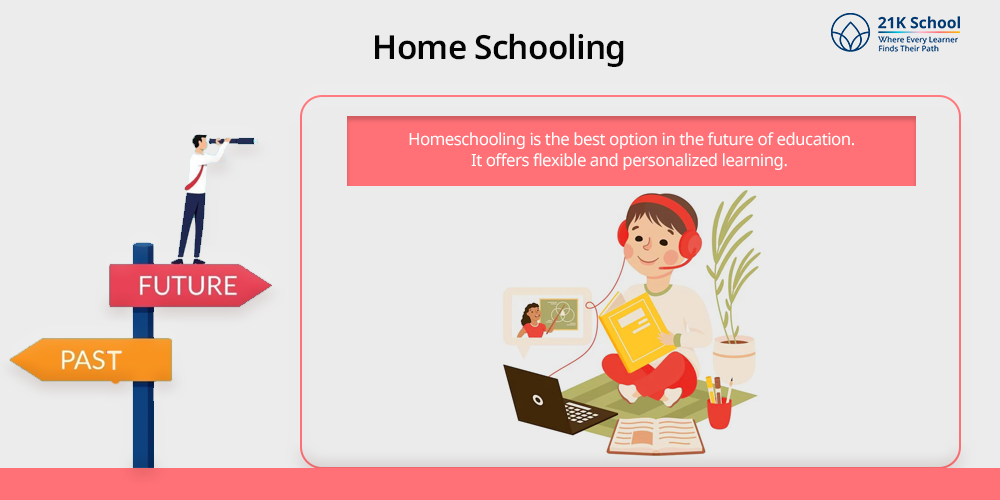
Homeschooling is the best option in the future of education. It offers flexible and personalized learning.
It is emerging as an alternative for some families who are unable to send kids school due to personal reasons. Schools like 21K school offer the best homeschooling facilities.
3. Customized & Skills-Based Assessment
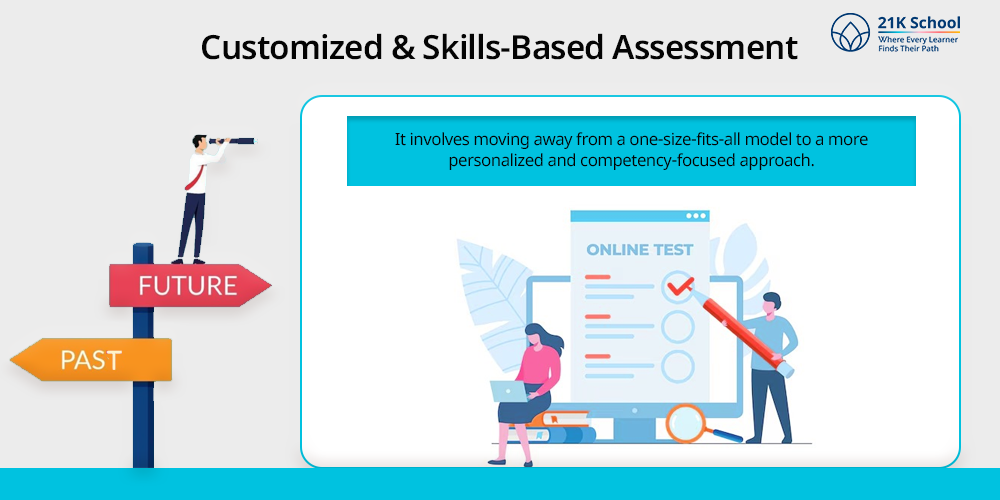
The future demands customized and skills-based assessment instead of traditional assessment.
It involves moving away from a one-size-fits-all model to a more personalized and competency-focused approach.
4. Impact of Robotics and Automation
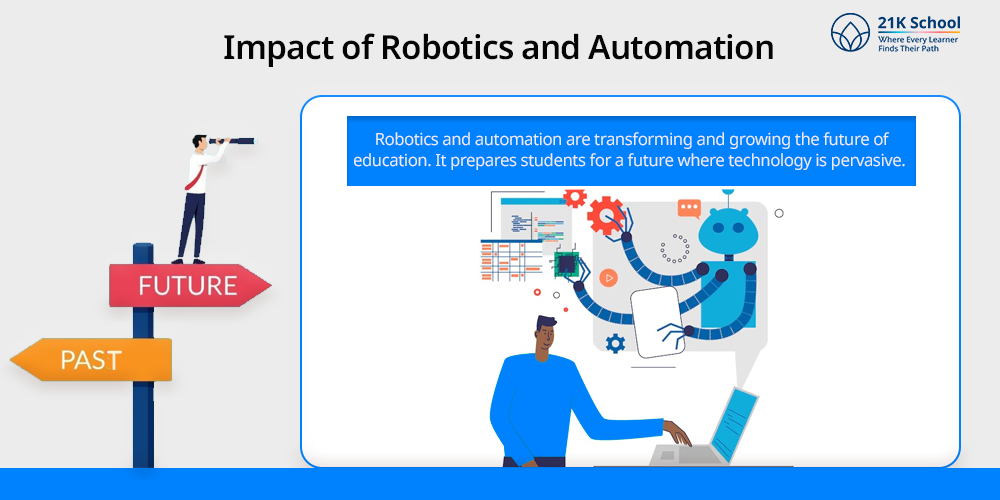
Robotics and automation are transforming and growing the future of education. It prepares students for a future where technology is pervasive.
It improves 21st century skills like creativity, emotional intelligence, and critical thinking etc.
5. Teachers with Advanced Tools
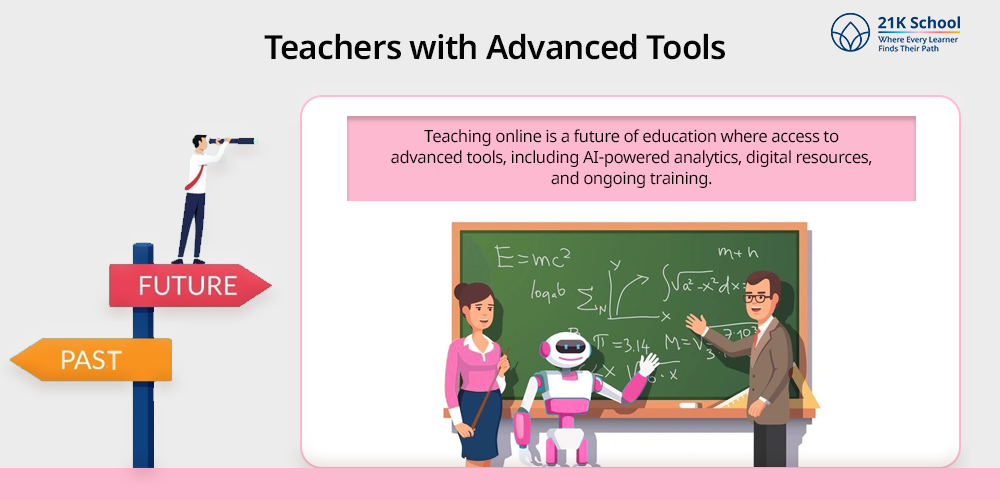
Teaching online is a future of education where access to advanced tools, including AI-powered analytics, digital resources, and ongoing training.
This helps teachers for nurturing empowered students.
Conclusion
The primary purpose of education is academic achievement. It is about nurturing responsible, empathetic, and capable individuals who can contribute meaningfully to society.
In India, the need to reimagine schooling is more urgent than ever. By aligning educational practices with broader developmental goals, addressing systemic challenges, and embracing innovation.
We can ensure that schooling works based on the purpose such as building a just, inclusive, and enlightened society.
The new era brings comfortability for teachers, students and parents. Explore how online schooling help invest in childs future.
